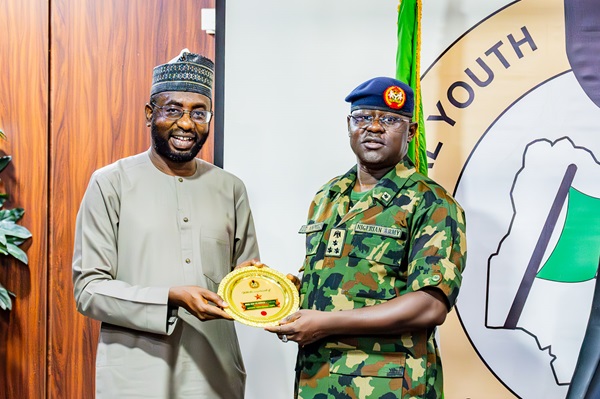
In a significant move to implement its Strategic Roadmap and Action Plan (SRAP 2.0) pillar of “Foster Digital Literacy and Cultivate Talents,” the National Information Technology Development Agency (NITDA) has launched a comprehensive initiative to enhance digital literacy across Nigeria.
The initiative, a collaboration with the Ministry of Youth and Sports Development and the National Youth Service Corps (NYSC), was formalised at the NYSC Secretariat in Abuja and is expected to bridge the digital divide and empower the next generation to thrive in an increasingly digital world. It aligns with President Bola Ahmed Tinubu’s Renewed Hope Agenda, which seeks to reform the economy and promote sustained inclusive growth by leveraging digital literacy and cultivating a pool of tech talent.
The initiative focuses on practical training in key areas such as software development, data analytics, cybersecurity and digital marketing. It aims to reach 30 million Nigerian youths, including NYSC members, by 2027, equipping them with the necessary skills for the digital economy.
Speaking on the importance of digital literacy, NITDA’s director-general, Mallam Kashifu Abdullahi emphasised leveraging technology to enhance productivity and digital skills. “We have set up a team to work with NYSC to explore how to infuse technology into the NYSC process, experiment with emerging technologies like blockchain to secure NYSC certificates and build digital skills capacity among corps’ members. Today we are here on a bigger mission,” Abdullahi said.
Abdullahi cited global research. predicting an 85 million talent deficit by 2030, potentially resulting in a loss of $8.5 trillion in annual value if unaddressed. He explained that this initiative would enhance employability, drive innovation and stimulate economic growth in Nigeria.
“We developed the National Digital Literacy Framework with an ambitious target of achieving 95 per cent digital literacy by 2030, with a mid-term target of 70 per cent by 2027. The framework promotes universal access to digital literacy, skills development at various proficiency levels, and workforce readiness for future digital demands,” he added.
Abdullahi detailed the implementation plan, which includes training corps’ members during their service year and using them as digital literacy ambassadors across Nigeria. “Our target is to leverage the NYSC platform to deepen digital literacy. The initiative involves onboarding corps’ members on digital platforms, providing continuous learning opportunities, and selecting ambassadors to teach digital skills in their communities,” he said.
Minister of State for Youth, Ayodele Olawande Wisdom commended the collaboration, emphasising unity of purpose in achieving shared goals. “I appreciate this collaboration because we are one family working towards the same goal. Regardless of where you come from, the important thing is that Nigerian youth are in a better position,” he said.
The minister acknowledged the dedication of all involved and expressed gratitude towards the NYSC’s leadership for its commitment to the cause.
NYSC director-general, Brig Gen YD Ahmed expressed enthusiasm for the initiative and assured NYSC’s full engagement. “This process is very good for us in NYSC and we will fully collaborate with NITDA to embrace the process,” he assured.
This initiative marks a significant step toward equipping Nigerian youth with the digital skills needed for a prosperous future in the digital economy.


